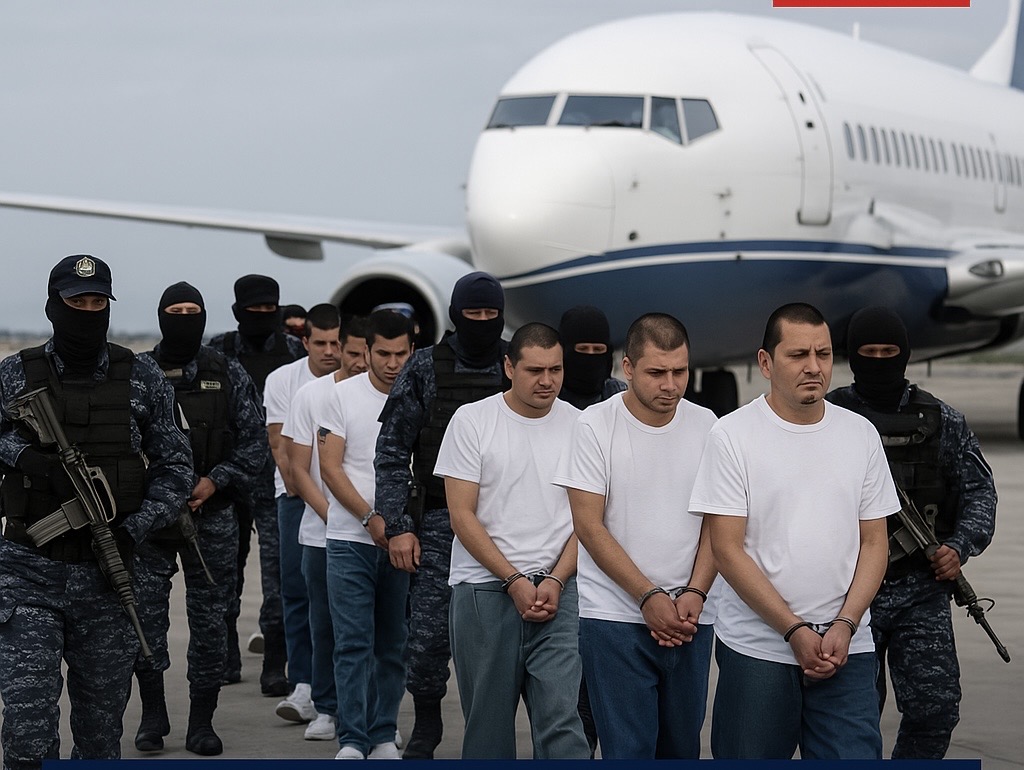In a high-stakes show of interborder cooperation, U.S. Secretary of State Marco Rubio made the announcement Sunday morning of the repatriation of 10 members of the MS-13 and Tren de Aragua gangs to El Salvador. The move is designed to illustrate the tightening security cooperation between the United States and the Central American nation.
“Yesterday night, once again 10 MS-13 and Tren de Aragua Foreign Terrorist Organization criminals infiltrated El Salvador,” Secretary Rubio posted on X (formerly Twitter).
“The joint work of @POTUS and President @nayibbukele has been the example of security and prosperity of our region.”
The deportees are reported to be linked to transnational gangs that the U.S. has also designated as Foreign Terrorist Organizations (FTOs). Their deportation is the latest stage in a swift, coordinated effort to dismantle violent groups engaged in drug trafficking, extortion, and human smuggling throughout the Americas.
Trump Administration’s Anti-Gang Strategy
The initiative aligns with President Donald Trump’s national security agenda in his second term of dismantling transnational criminal syndicates through enhanced law enforcement coordination. The U.S., under his leadership, has increased the push to deport gang members and work with governments like El Salvador to prosecute and hold them behind bars in the long run.
Bukele’s Tough-on-Crime Approach Gains Ground
President Nayib Bukele’s government has enforced sweeping anti-gang measures since 2022, including large-scale arrests, legal overhaul, and a tough stance towards organized crime. These measures have led to a sharp decline in homicides and other violent crimes—formerly rampant across the nation.
The U.S. State Department’s action on April 8, 2025, to award El Salvador a Level 1 travel advisory—the highest designation for American tourists—only serves to validate the nation’s turnaround. What was once labeled as one of the most violent places on the planet, El Salvador is now being praised for its reconstituted public security and effective law enforcement.
While opposed by human rights groups on grounds of due process and judicial autonomy, domestically Bukele remains incredibly popular and winning international recognition for results that have rebranded El Salvador’s global image.
Deep-Rooted Strategic Partnership
The United States and El Salvador share diplomatic relations since 1863, traditionally collaborating on security, immigration, and economic development. Recent years have seen fighting transnational crime as the linchpin of their relationship.
Under current agreements, El Salvador has committed to receiving and trying gang members deported from the U.S.—a move that reflects shared commitments to regional stability and justice.
Although Bukele’s more autocratic tendencies—such as the 2021 ouster of constitutional judges, a highly divisive move—have concerned analysts, several regional experts argue that his administration’s gains in public security cannot be overlooked.
Broader Regional Impact
The deportation is also part of a larger U.S. effort to crack down on MS-13 and Tren de Aragua operators. Federal and state prosecutors have stepped up investigations and are handing down lengthy sentences to gang members.
By deporting these men to El Salvador—where the government is stronger and more willing to prosecute them—the U.S. hopes to prevent these criminal syndicates from reassembling within American borders.
Despite the advances, the U.S. government continues to advise travelers in El Salvador to be cautious, encouraging them to avoid rural areas at night and stay on highways, especially outside of city limits.
A Regional Model?
As the United States and El Salvador strengthen their partnership on security, their approach is increasingly being seen as a potential model for other nations that struggle with violent transnational gangs. Although Bukele’s policy remains contentious, the reduction in crime, increase in tourism, and boost in foreign confidence demonstrate that the partnership is producing measurable results.
The extraditing of these 10 gang members successfully is a show of the power of international cooperation to combat organized crime. Washington and San Salvador have expressed commitments to follow through on this momentum with more joint operations.
This article will be updated as further information becomes available.
For more news and updates, visit VirginiaTimes.com.
A global media for the latest news, entertainment, music fashion, and more.





